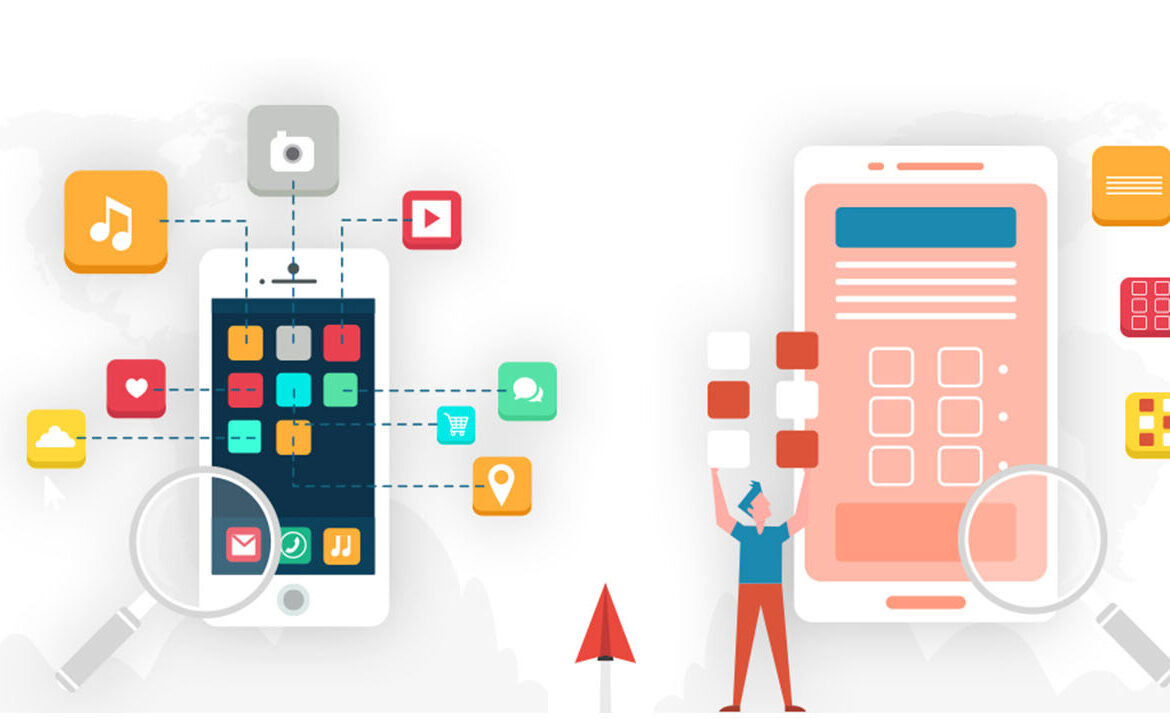Get A Job As A Mobile App Developer: Complete Guide Step By Step
With the exponential growth of smartphones and the increasing demand for innovative mobile applications, the field of mobile app development has become a highly sought-after career path. If you have a passion for technology and a creative mindset, becoming a mobile app developer can offer you exciting opportunities and a fulfilling professional journey. This complete guide aims to provide you with a step-by-step roadmap to kickstart your career as a mobile app developer. From understanding the basics of mobile app development to mastering essential skills, navigating education and training options, and ultimately landing your dream job, this comprehensive guide will equip you with the knowledge and strategies needed to succeed in this thriving industry. From mastering programming languages to building a standout portfolio, we’ve got you covered. Start your journey towards a successful career in mobile app development today!
1. Introduction to Mobile App Development
What is Mobile App Development?
So you’ve spent countless hours scrolling through your phone, wondering how all those incredible apps were made. Mobile app development is the process of creating applications specifically designed for use on mobile devices such as smartphones and tablets. It involves a combination of coding, design, and problem-solving to bring those app ideas to life.
The Importance of Mobile App Development
Businesses, large and small, recognize the importance of having a mobile presence to engage with their customers effectively. This has created a huge demand for skilled mobile app developers who can create innovative and user-friendly applications.

2. Exploring the Demand for Mobile App Developers
Growth and Trends in the Mobile App Industry
The mobile app industry is experiencing explosive growth, with no signs of slowing down. With the increasing number of smartphone users worldwide, the demand for mobile apps is skyrocketing. According to studies, global app downloads are estimated to reach a staggering 258 billion by 2022. This rapid growth opens up endless opportunities for aspiring mobile app developers.
Opportunities for Mobile App Developers
Mobile app developers are in high demand across various industries, including entertainment, e-commerce, healthcare, finance, and more. Whether you’re interested in working for a tech giant, a startup, or even freelancing, the job prospects are promising. The flexibility and creativity that come with mobile app development make it an exciting career choice, where you can constantly learn and innovate.
3. Building a Strong Foundation: Essential Skills and Knowledge
Programming Languages for Mobile App Development
To become a mobile app developer, you’ll need to have a solid understanding of programming languages such as Swift (for iOS development) and Java or Kotlin (for Android development). These languages serve as the building blocks for developing mobile apps. Don’t worry if you’re new to coding – with dedication and a bit of practice, anyone can learn the ropes.
Understanding User Experience (UX) and User Interface (UI) Design
Creating a great user experience is crucial for the success of any mobile app. Understanding user experience (UX) and user interface (UI) design principles will help you design apps that are intuitive, visually appealing, and delight users. A strong grasp of UX/UI design will make your apps stand out from the crowd and keep users coming back for more.
4. Steps to Get Started: Education and Training
Formal Education Options
While a formal education isn’t always necessary, it can provide you with a comprehensive understanding of mobile app development. Pursuing a degree in computer science, software engineering, or a related field can equip you with the fundamental knowledge and skills needed for a successful career in app development. However, keep in mind that the tech industry values practical skills and experience just as much as formal education.
Online Courses and Self-Study Resources
If you prefer a more flexible and self-paced approach, online courses and self-study resources are excellent options. Websites like Udemy, Coursera, and Codecademy offer a wide range of mobile app development courses, suitable for beginners and experienced programmers alike. You can learn at your own pace, experiment with app development projects, and gain practical skills that employers value.
Remember, breaking into the world of mobile app development requires dedication, continuous learning, and a passion for creating user-friendly experiences. So buckle up, grab your favorite cup of coffee, and embark on an exciting journey into the ever-evolving realm of mobile app development!

5. Mastering Mobile App Development: Tools and Technologies
Overview of Mobile App Development Platforms
When it comes to mobile app development, there are a plethora of platforms to choose from. Some popular ones include iOS, Android, and cross-platform frameworks like React Native and Flutter. Each platform has its own set of tools, languages, and development environments, so it’s important to familiarize yourself with them. Take the time to explore different platforms and decide which one aligns best with your interests and career goals.
To become a mobile app developer, you’ll need a reliable set of tools and software to bring your ideas to life. Some must-have tools include an Integrated Development Environment (IDE) such as Xcode for iOS or Android Studio for Android development. You’ll also need a good code editor like Visual Studio Code or Sublime Text to write clean and efficient code. Additionally, utilizing version control systems like Git can help you collaborate with a team and keep track of changes to your code.
6. Crafting a Standout Resume and Portfolio
Highlighting Relevant Skills and Experience
When it comes to landing a job as a mobile app developer, having a standout resume is crucial. Showcase your relevant skills and experience by highlighting your proficiency in programming languages like Swift, Java, or JavaScript. Don’t forget to mention any app development frameworks or tools you’re familiar with. If you’ve worked on any mobile app projects or have completed relevant certifications or courses, be sure to include those as well.
Showcasing Mobile App Projects and Accomplishments
One of the best ways to impress potential employers as a mobile app developer is by showcasing your portfolio. Create a website or online presence where you can display your completed projects, including screenshots, descriptions, and the technologies used. Employers want to see your ability to create functional and visually appealing apps, so make sure to highlight your best work and any awards or recognition you’ve received.

7. Nailing the Job Interview: Tips and Strategies
Preparing for Mobile App Development Interviews
Preparing for a job interview as a mobile app developer requires a mix of technical and interpersonal skills. Brush up on your programming concepts, algorithms, and data structures. Be ready to discuss your previous projects and explain your role in the development process. Additionally, research the company you’re interviewing with and familiarize yourself with their products or services. This will enable you to tailor your answers to their specific needs and demonstrate your enthusiasm for the role.
Answering Common Interview Questions
During a mobile app development interview, you can expect questions about your technical skills, problem-solving abilities, and your approach to teamwork. Be prepared to talk about how you handle challenging situations, how you collaborate with others, and how you stay updated on the latest trends in mobile app development. Practice answering common interview questions, and remember to communicate your passion for creating innovative and user-friendly mobile applications.
8. Landing the Job: Negotiating Salaries and Contracts
Understanding Mobile App Developer Salaries
Understanding the salary range for mobile app developers can help you negotiate a fair compensation package. Salaries can vary based on factors such as experience, location, and the company’s size. Research industry standards and use online salary calculators to get an idea of what you can expect. Remember that it’s not just about the salary, but also the benefits and growth opportunities the company offers.
Negotiating Employment Contracts and Benefits
When it comes to negotiating employment contracts and benefits, it’s important to consider factors beyond just the monetary aspect. Look into the company’s culture, work-life balance, professional development opportunities, and any additional perks they offer. Be prepared to negotiate not only your salary but also benefits such as health insurance, vacation time, and flexible working hours. Remember, it’s a two-way street, and both parties should feel satisfied with the final agreement.
Conclusion
In conclusion, pursuing a career as a mobile app developer can open doors to a world of innovation and endless possibilities. By following this step-by-step guide, you can build a strong foundation of skills, acquire in-demand knowledge, and position yourself as a competitive candidate in the job market. Remember to continuously update your skills, stay updated with the latest trends and technologies, and maintain a strong portfolio to showcase your expertise. With dedication, perseverance, and a passion for mobile app development, you can embark on a rewarding journey that allows you to create impactful and user-friendly mobile applications. So, take the first step today and start your journey towards a successful career as a mobile app developer.

FAQ
1. Is a degree in computer science necessary to become a mobile app developer?
No, a degree in computer science is not always necessary to become a successful mobile app developer. While formal education can provide a strong foundation, there are ample opportunities to learn and develop skills through online courses, self-study, and practical experience. However, having a degree can enhance your credibility and open doors to more advanced career opportunities.
2. What programming languages are commonly used in mobile app development?
Some of the commonly used programming languages in mobile app development include Java, Swift, Kotlin, and JavaScript. Java is primarily used for Android app development, while Swift and Kotlin are commonly used for iOS app development. JavaScript, along with frameworks like React Native and Flutter, allows for cross-platform app development.
3. How important is user experience (UX) and user interface (UI) design in mobile app development?
User experience (UX) and user interface (UI) design play a crucial role in mobile app development. UX focuses on creating intuitive and seamless user interactions, while UI design involves creating visually appealing interfaces. Both elements are essential for ensuring user satisfaction and engagement with the app. A well-designed and user-friendly app can significantly impact its success and adoption rates.
4. How can I stay updated with the latest trends and technologies in mobile app development?
Staying updated with the latest trends and technologies in mobile app development is crucial for remaining competitive. You can achieve this by actively following industry blogs, subscribing to developer newsletters, participating in online communities, attending conferences and workshops, and exploring online learning platforms that offer courses specifically tailored for mobile app developers.
Thank you for reading 🙂

















